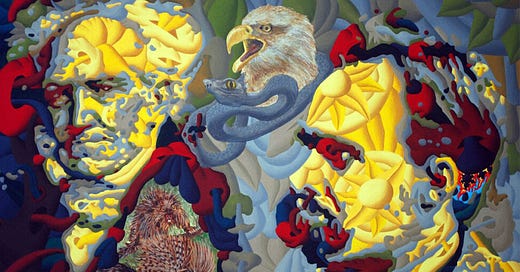“Philosophically, Schopenhauer’s ideas found fuller development, though with opposite conclusions, in the work of Nietzsche. Nietzsche described the discovery of The World as Will and Representation as a revelation. Schopenhauer’s conception of the will is central to Nietzsche’s philosophy – except whereas Schopenhauer saw the will as evil and the source of suffering, Nietzsche envisioned it as the “will to power,” and saw in it the solution to the problem of nihilism.”
Friedrich Nietzsche (1844-1900) remains a household name, known as the philosopher of “might makes right,” who proclaimed, “God is dead,” and the favorite philosopher of the Nazis. But this is a caricatured oversimplification. Nietzsche more than anything was the philosopher who turned inward for a solution to the problem of nihilism and found it in the “will to power” – not a lust for violence or political power, but rather an inward force that seeks not only to preserve the self, but to overcome all that stands in opp…
Keep reading with a 7-day free trial
Subscribe to The Chained Muse to keep reading this post and get 7 days of free access to the full post archives.




